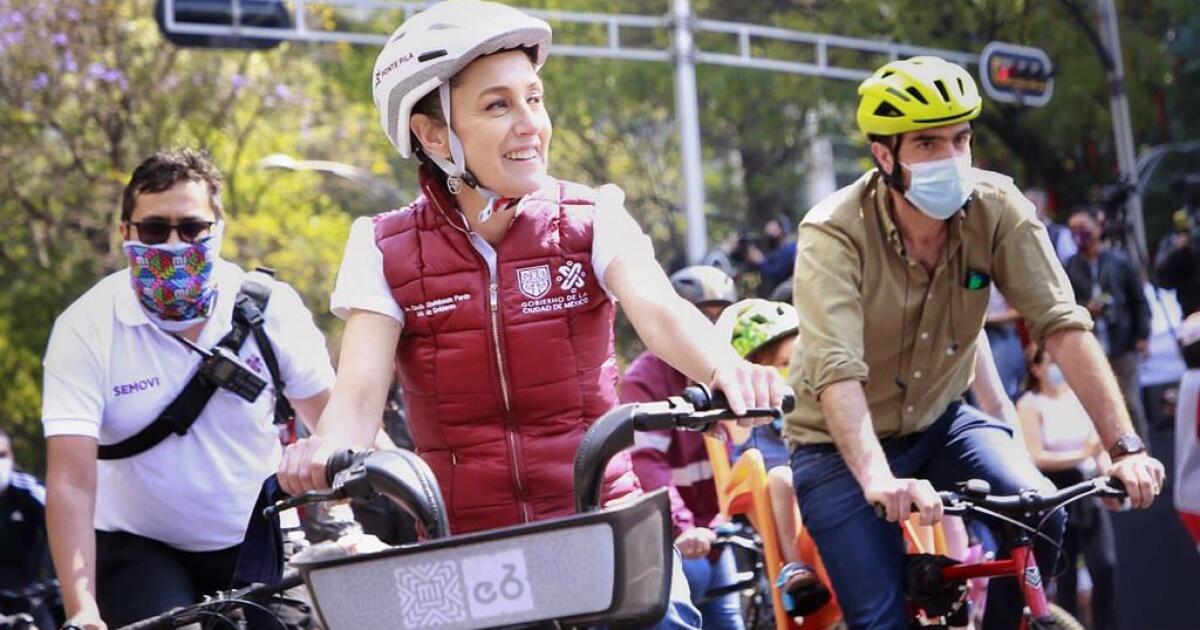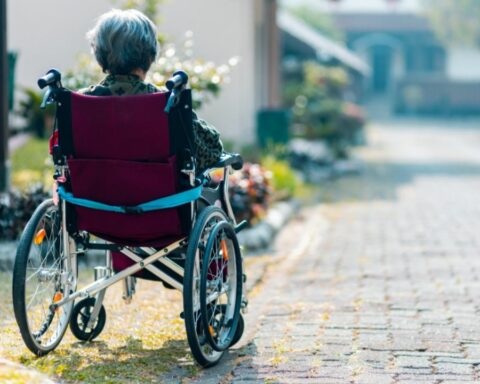To date, four provinces in the north of the country are under a State of Constitutional Exception, decreed after the migration crisis spilled over, exacerbated by crime but carried out after the pressure imposed by a truckers’ union after the brutal murder of Brayan Castillo , who was thrown off a cliff. At the same time, in the southern macro zone, four provinces are also under the tutelage of the Armed Forces after the escalation of violence associated with the Mapuche conflict, a phenomenon that also overflowed during the current administration, and which has as a backdrop The bottom line is the failure of Plan Araucanía, that dialogue effort that Alfredo Moreno tried to find, but which went to the cliff after the ill-fated debut of the Jungle commando and the murder of Camilo Catrillanca. Apart from this, since the beginning of the pandemic, the entire Chile was under a State of Exception for a year and a half, being one of the longest on the planet. And how not to highlight, the first of all, the one that was summoned by President Sebastián Piñera due to the inability to restore public order during the social outbreak.
And although -various analysts point out- each of the decreed states of exception has different reasons and contexts, the recurrent use of this control tool has become an abuse of the resource that has only revealed the lack of vision, strategy and political deficit of the Executive. Sources close to the government admit that La Moneda has not had the capacity to understand, anticipate, or accompany crises in order to find political solutions, having had to resort to the Armed Forces. And again.
Among several of those consulted, a good part agrees that although the phenomena are not fully explained in the responsibility of the current Government, its treatment, management and a deeper vision of each one of the aspects, if they would be factors of responsibility of Executive.
The director of TúInfluyes, Axel Callís pointed out that “proposing a state of emergency after an earthquake is not the same as social crises, which have very deep social causes. What it allows you to do is mobilize resources, a contingent of carabineros, it allows you to carry out a series of operations that have to do with the situation, but not with solving the problems, there is the political deficit, understanding the problems not from the causes, but than from the symptoms.
In the case of the political scientist and academic from the University of Talca, Mauricio Morales, he pointed out that “the declaration of a state of exception is the clearest symptom of the absence of politics, if we understand politics as the exercise of power, and as the capacity of a government, to curb conflicts, or to channel them institutionally”.
The different states of exception and their reasons
Regarding the two states of exception that currently govern the country, both in the southern macro zone and in four northern provinces but which cross three regions, the blame points to the lack of understanding of the first and anticipation in the second. . In the south of the country, the state of exception was decreed on October 18 last year and has been renewed eight times with the consent of Parliament, since the Executive cannot do it on more than one occasion without the assistance of the second power of the State, Legislative. In any case, in the palace from the beginning they indicated that they were going to seek to renew it until they left the government, which for some, although it has a share of reality, for others it is also evidence of having resigned from the exercise of power.
For Defense expert Richard Kouyoumdjian Inglis, in the case of the southern macro-zone “a problem that came from before and that no government has been able to solve got out of hand. Once you bring in the Armed Forces, you don’t take them out anymore. Even more so, if there are no initiatives dedicated to solving the underlying problems”.
In the case of the IES researcher, Álvaro Vergara, his analysis indicates that “no doubt more could have been done. The anthropologist Rolf Foerster had been warning since the 1990s that an ethnonationalist movement was forming in the south and no one was alarmed. Terrorist attacks had to be resumed for an eye to be placed on one of the most abandoned and poorest regions. The communities, for example, have been dealing with problems of precariousness for a long time; the hectares of pine grew at a brutal rate, drying up the groundwater that was already being affected by the drought. Until this blew up. The solution should and should be political, but at this point that has become a commonplace.
In the case of the north, even when the background is the migratory crisis interspersed with criminal violence, the government’s decision was made after a truckers’ union decided to cut access routes, only there did La Moneda react more actively, using the State of Emergency as a bargaining chip to lower unemployment. And although, like most phenomena, this one did not start under this administration, there were several signs that the leaders of the three regions involved had already anticipated. In October of last year, the Minister of the Interior was questioned and on that occasion the situation that was being experienced was explained to him, to which were added the citizen mobilizations that left postcards such as the burning of cars and the few belongings that a group of migrants kept in their tents in the city of Iquique.
Before the conflict broke out to the levels known to all today, the former foreign minister, Andrés Allamand, an important factor in migration matters, was outside Chile, and only returned (to resign) after unsustainable pressure for which he was accused abandonment of duties. Such was the evidence that things were not being done in the right way that on the day of his resignation, La Moneda issued three communiqués to explain “the inexplicable,” Foreign Ministry sources said at the time. To all this is added that only four of the 23 ministers were in office at the time of one of the biggest crises in the matter.
For Callís “since the outbreak, the right has looked at politics from the outside, it has not been there, the government has been systematically late, not because of an ideological issue, but also because of not having the capacity to anticipate, the policy is to anticipate the facts”. Morales indicated that “migration, late and clumsy reaction, they realized that the crisis had exploded when the first protests took place in the north. Having gone to Cúcuta and saying that people would be received here was a serious political error by the President, without prejudice to the fact that the migratory situation has become more difficult since former President Bachelet.”
Vergara added that “the government here reacted badly and late, but it is not the only culprit: the Immigration Directorate and the opposition also play here, which has become destructive except when it can obtain political gains itself, as happened with the Pension Guaranteed Universal”.
Pandemic
In the case of the pandemic, the state of exception lasted for months, on the occasion, the questions pointed to the fact that the formula applied by the Government, had as a second derivative an option to have greater control in terms of order and security, that due because the social mobilization that generated the outbreak was still in force.
Kouyoumdjian said that “a pandemic, which required their use for more than 18 months, and with the temptation to use them sometimes for other topics. I am left with the doubt of the criticism of the left to its use, I think that any government would have used them, but I do not know if for so long.
The case of the application of the state of exception during the social outbreak caused a great impact both outside and inside La Moneda, it was the first time that it had been applied since the return to democracy and the decision left several in the house of Government on the verge of decompensation. At that time, palace sources recounted how several of the advisers and also ministers were complicated by not knowing how to defend that determination before their close ones, more than one even cried that night.
The departure of the military from their barracks to, with weapons of war, take charge of security, is considered another of the milestones, which although history will qualify them, without a doubt they have a special page in the book of this novel.
Callís explained it as follows: “What happened is that Sebastián Piñera shows all the deficits. All the deficits accumulate in it, from the rigidity of keeping the model intact. The November 15 agreement does not exculpate the President, it took place almost in a state of de facto parliamentarism”.
As a final reflection, Vergara added that “the lack of a clear diagnosis of the causes of the problems tends to lead to the application of the state of exception. The difficult thing is that we are falling into a kind of exception as a general rule. We are getting used to the fact that our freedoms are being restricted more and more. The biggest problem is that any social coupling to exceptionality crosses a barrier in people’s lives that later becomes very difficult to re-accommodate their initial circumstances. Abusing states of exception is dangerous. Although they are necessary and almost all the countries of the world contemplate exceptional measures, authoritarian authors such as Carl Schmitt or Donoso Cortés expressly recognized that this type of measure constituted an instrument of social control”.
For Kouyoumdjian “the use of states of exception is a constitutional tool. The problem is that the political system is authorizing and validating its use by this government. The truth is that the political system does not know what to do with La Araucanía and the immigration problem and the only thing they can think of is to use the Armed Forces to reinforce police officers who do not have the people or the resources to handle political problems. He noted that the use of the Armed Forces has its limits. They are not trained for police work and they do not have legal regimes to help them in case they have to act and get heavy. They act more by presence. They are a poor solution to problems that politicians have been unable to solve, but perhaps the only one at hand. At the end of the day they are asking the cat to take the chestnuts out of the fire with his hands”.








